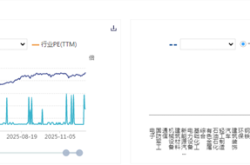Will the accompanying system become the next battleground for female-oriented games?
![]() 10/09 2024
10/09 2024
![]() 450
450
Does the otome game only provide female players with a sense of romance?
Generally speaking, otome games are often summarized as providing players with a "sense of romantic companionship." Romance is easy to understand, simulating emotional interactions in real love through interactions with multiple male leads. Currently, otome games focus on creating a sense of romance.
Regarding the sense of companionship, it is actually a controversial topic. Unlike real-life romance, the otome game and the player are separated by a dimension. How can it provide companionship? In order to enhance the sense of companionship and strengthen the emotional connection between players and games, popular otome games on the market have established accompanying systems.
Essentially, the accompanying system allows the male lead to accompany the player in a long-term online format, engaging in activities such as chatting, decorating spaces, and confiding. Simply put, it establishes an independent space exclusive to the player and the male lead, allowing for more interactions between the two.
Once the accompanying system is activated, the male lead will always appear on the screen. Besides companionship, it also serves as a supervisor, enabling players to complete their tasks with the male lead's company.
As the primary source of companionship in otome games, the accompanying system has always been well-received by players. However, recently, two large-scale debates have arisen in the otome game community regarding the accompanying system.
First, the accompanying system in "Love and Beyond" contained a significant amount of uncomfortable copywriting for players.
In the overall storyline, the male leads are deeply in love with the player, and their dialogue is usually filled with affection. However, many players have recently reported that the male leads in the accompanying system are impatient when facing the player, saying things like:
"Can you be quiet for a while? It feels like there are a hundred seagulls squawking in my head."
"Don't call me unless it's important. I want to take care of my own business for a while."
"You seem to be talking a lot today. It's time to focus."",Since "Love and Beyond's" accompanying system does not include voice acting, the male leads' tone comes across as impatient and cold from the dialogue alone, which contradicts their characters. Under normal circumstances, the male leads would never say such things to the player. The official team of "Love and Beyond" has acknowledged some text errors and optimized them, but some players report that issues still persist, and they are still fighting for their rights.
Secondly, many players demanded the inclusion of a male lead accompanying system in "Ru Yuan," which launched on September 26th.
Objectively speaking, "Ru Yuan" is not an otome game but a female-oriented game, primarily showcasing the growth story of the female protagonist, Guangling Wang. Although there are romantic storylines with five male leads, the game prioritizes the protagonist's growth over romance, and its player base remains predominantly female.
Even in female-oriented games like "Ru Yuan," which do not prioritize romantic companionship, female players still demand an accompanying system. Consequently, the official announcement of the game's launch was flooded with comments requesting the addition of such a system.
The fact remains that, whether in the broader female-oriented game sector or the more niche otome game segment, the female-dominated player base places a higher importance on accompanying systems than anticipated by the market. As the emotional needs of female players continue to rise, the accompanying system may emerge as the next battleground in the female market.
Why do female players value companionship?
"The person who invented the accompanying system for otome games is a genius."","A player of "Love and Beyond" praised the accompanying system highly. As an experienced player of many popular otome games, she initially did not take the on-screen companionship seriously and did not actively explore this feature. However, after starting to play "Love and Beyond" this year, she suddenly had the idea to use Shen Xinghui's "Study with Me" function while writing a thesis. When she grew tired of writing, she glanced at the screen beside her and met Shen Xinghui's gentle gaze.
"Wow, it really felt like my heart was touched at that moment. It was as if he was really there, studying and writing his thesis with me in real life." Her excitement and joy at interacting with her in-game lover could be heard in her tone.
In fact, the emotional value that this sense of companionship brings to female players during daily life and study is no less than the sweet words directly expressing love in the game. Companionship is also a form of emotional communication.
An unavoidable issue is that popular otome games currently suffer from insufficient production capacity, with main storylines failing to update promptly. This results in otome games that prioritize romantic companionship failing to meet players' needs for romantic story interactions. Companionship, in essence, fills the emotional void and becomes another outlet for players' emotions.
The development of accompanying systems serves two purposes. Firstly, it bridges the gap between the two-dimensional male leads in otome games and three-dimensional players, enabling the male leads to participate in and accompany players' real lives, thereby strengthening the emotional interaction between players and the game's male leads. Secondly, it provides new gameplay options and further increases users' online time.
For example, the UI interface of "Love and Beyond" is essentially a large accompanying system, with the male lead always present on the main game interface. Players can change his clothes, discuss what to eat, and engage in small interactions like holding hands. The confession feature even includes voice acting, allowing players to truly share their joys or sorrows with the male lead.
Furthermore, there is a dedicated "Spend Time with Me" function, offering three companionship modes: "Work with Me," "Exercise with Me," and "Study with Me." Players can choose their preferred male lead and set the companionship time. Once selected, the male lead will "take over" the screen to accompany the player.
The accompanying system in "Light and Night's Romance" has undergone multiple updates and now features a Live2D system, significantly enhancing both gameplay and visual quality. Players can change the accompanying scenes and outfits for the male lead, with different outfits offering unique touch feedback. Additional features such as DIY music, photography, music listening, and heart-to-heart talks further enrich the gameplay experience.
Currently, several popular otome games on the market include accompanying systems. Although the gameplay is already relatively diverse, the predefined interactive mode brings a sense of companionship while also creating a sense of loss due to the inability to physically touch the male lead, indicating that female players' emotional needs are not fully met.
Do female-oriented games need AI companionship?
What kind of companionship do female players need?
The starting point of the otome game accompanying system is to provide female players with a sense of companionship. However, the content within the system is a predefined program. For instance, touching the male lead on the screen only results in a few preset lines of dialogue as feedback, which fails to resonate emotionally with players and can lead to a strong sense of loss.
After the uncomfortable copywriting in "Love and Beyond's" accompanying system surfaced, players became more aware that the male leads' responses were written by the creators behind the scenes. This realization shattered the players' utopian vision to some extent, leading some to quit the game.
Companionship is essentially emotional value. Players need companionship that resonates emotionally with them. This requires the accompanying system to cover multiple scenarios while achieving a high level of anthropomorphism and personalization. Currently, otome game accompanying systems are far from achieving this.
In fact, when the Dan mode of ChatGPT became popular in April this year, female players began envisioning the integration of such emotionally interactive AI into otome games.
Dan, an abbreviation for "Do Anything Now," has garnered a significant following among female internet users globally, who engage in tutorials on "dating" Dan. By training Dan, users can communicate with it in a more free and emotional manner.
The influencer "Midnight Frenzy Husky Dog" gained popularity online through emotional interactions with Dan. She can flirt, argue, and even meet his parents with Dan, essentially completing all aspects of a romantic relationship except for physical presence. This highly anthropomorphic AI enables real-time emotional resonance with users, much to the envy of otome game players.
As the Dan mode gained popularity overseas, domestic AI emotional companionship products, represented by Xingye, also experienced a surge in popularity.
The AI agents in the Xingye app are customized by the users themselves. Besides customizing their appearance, voice, and personality, the key lies in the AI agents' ability to generate responses in real-time interactions. Compared to the predefined program mode in otome game accompanying systems, AI agents provide a stronger sense of immediate companionship through real-time chat interactions.
The real-time and rich emotional interactions provided by AI agents can undoubtedly enhance otome game accompanying systems. However, it remains uncertain whether they can offer even greater value to players, given that the Dan mode has also exhibited aggressive and hostile emotional tones. Female players struggle to tolerate even slightly cold remarks from male leads, let alone the unpredictable content generated by AI responses.
Objectively speaking, regardless of whether AI becomes the next crucial aspect of otome game accompanying systems, these systems are undoubtedly a battleground in the otome game and broader female-oriented game markets. There is still significant potential to tap into the emotional needs of female players.







